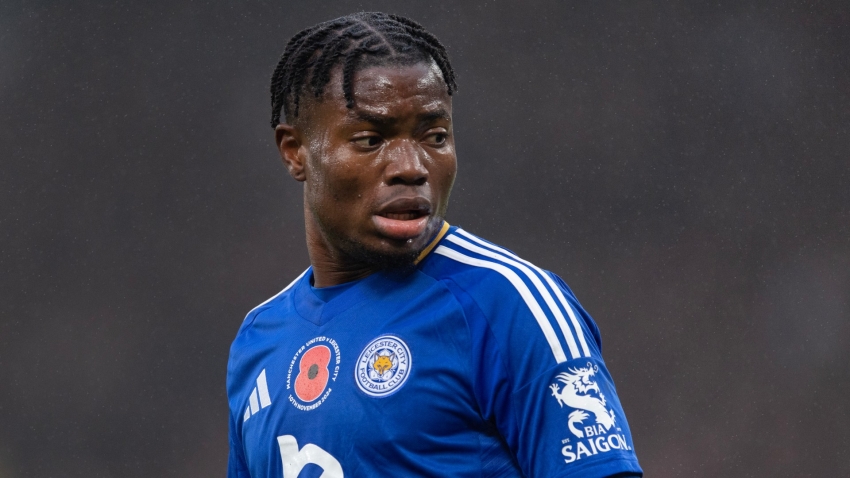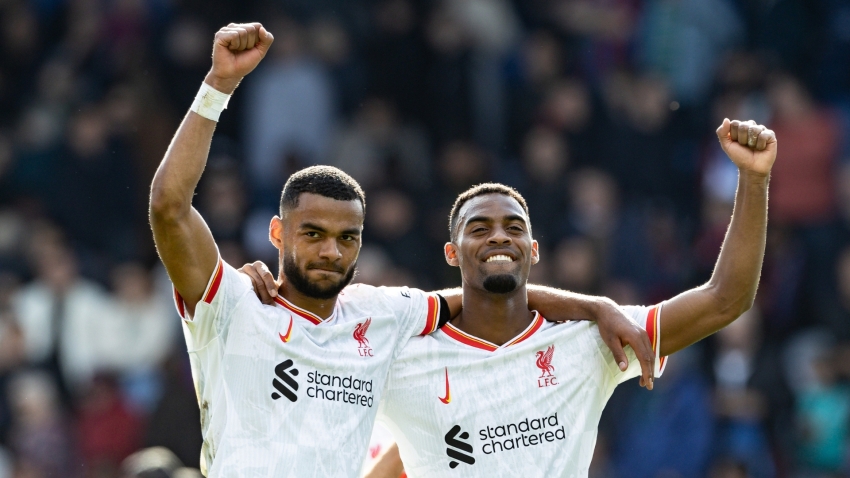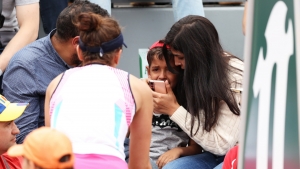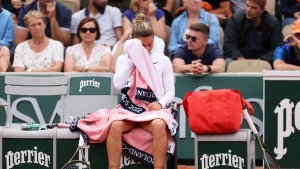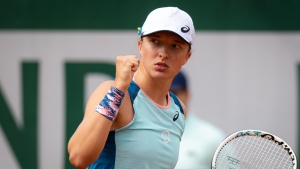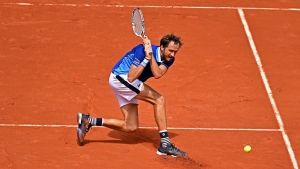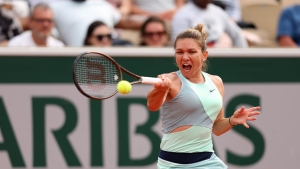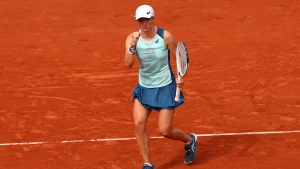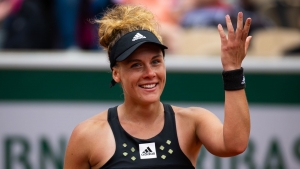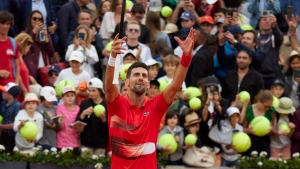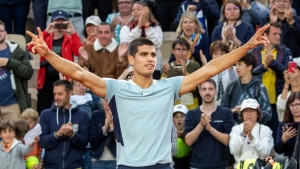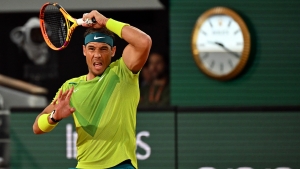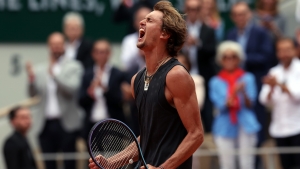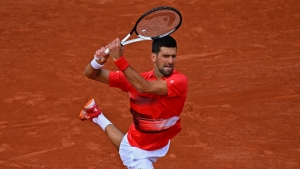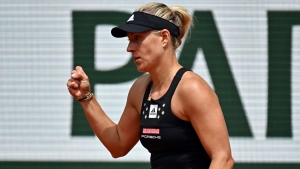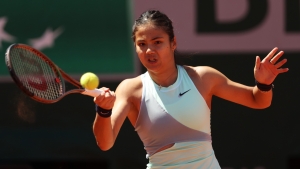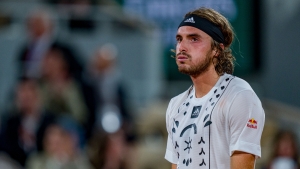Leolia Jeanjean became the lowest-ranked woman to beat a top-10 player at the French Open since 1988 as the world number 227 stunned Karolina Pliskova on Thursday.
French player Jeanjean was a promising youngster whose career looked to have been scuppered by knee trouble, but at the age of 26 she is making her grand slam debut in Paris and is through to the third round.
On Court Simonne-Mathieu, she crushed last year's Wimbledon runner-up Pliskova 6-2 6-2, surprising herself with the way she brushed off the eighth-seeded Czech.
It made Jeanjean the lowest-ranked woman to beat a top-10 opponent at Roland Garros since a 16-year-old Conchita Martinez upset ninth seed Lori McNeil at the 1988 tournament.
The then little-known Martinez would go on to win Wimbledon in 1994 and reach number two in the world.
As a teenager, Jeanjean reached 676th in the world in 2013, but she had slumped to 1,180th by November 2020. A once-promising career looked set to end with Jeanjean sliding into obscurity, but she thrilled the Roland Garros crowds with her dismantling of Pliskova.
Mixing her studies in finance with college tennis at Lynn University and the University of Arkansas has helped Jeanjean climb inside the top 250 on the WTA Tour, and her big-stage breakthrough has finally arrived in her homeland.
"I'm very, very happy," she said. "What's happening right now is something I never imagined before. When I stopped playing for four to five years I never imagined I'd be in the third round of a grand slam.
"The fact I never gave up and always believed in myself is probably why I'm here today. Now I'm 26, and it's my first grand slam. I thought I would have lost in the first round in two sets and I find myself beating a top-10 player.
"I don't know how it's possible that it's happening."
It was after Jeanjean sustained her knee injury that she chose to go down the US college route with her career, knowing many tennis stars have come through the system.
"I wanted to give myself another chance," she said.
Pliskova lost on clay to a player from outside the WTA top 200 for the first time since going down to Arina Rodionova in qualifiers for a tournament in Fes, Morocco, more than 10 years ago. Irina-Camelia Begu awaits Jeanjean in the third round.
Pliskova's exit was the latest in a string of shocks which have meant that for the first time at Roland Garros, six or more of the top 10 seeds have been eliminated in the first two rounds. She joined Barbora Krejcikova, Maria Sakkari, Anett Kontaveit, Ons Jabeur and Garbine Muguruza on that list of casualties.
The 30-year-old Pliskova said Jeanjean's variety made her an awkward opponent, and suggested the courts played slowly.
"I think this court is a bit too brutal,," Pliskova said during a news conference. "My serve was not working. I don't have a horrible feeling but, of course, like you lose, so of course I'm not happy about it, but I just want to give credit to her, I think she played a great match."










